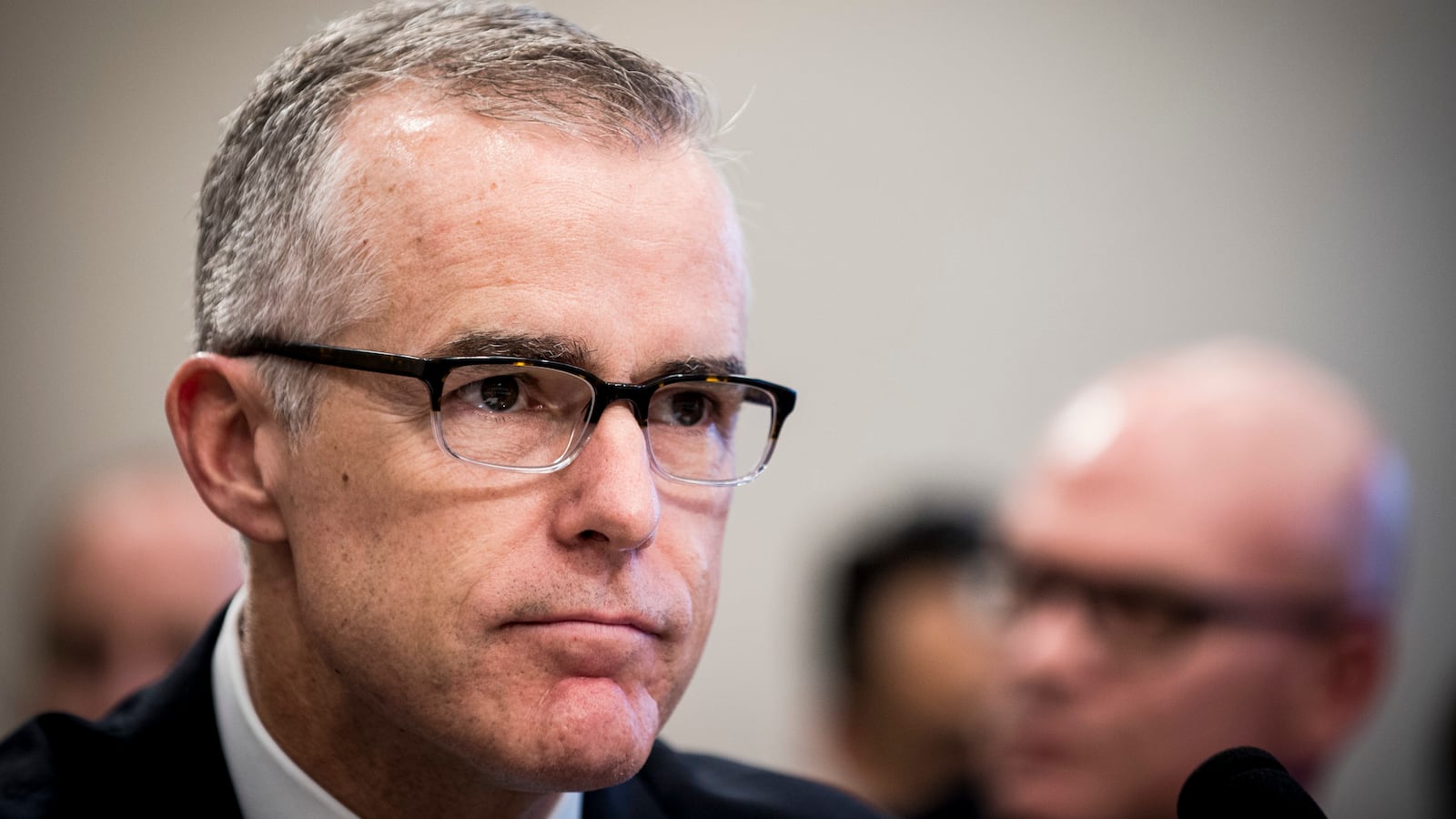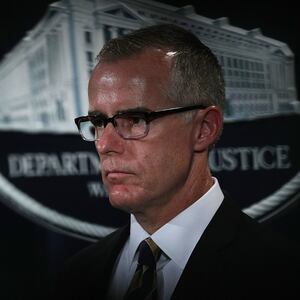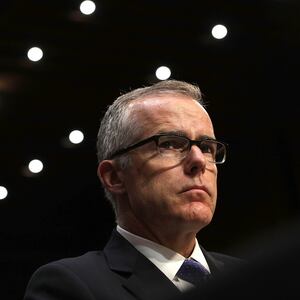Former FBI deputy director Andrew McCabe faced scorching criticism and potential criminal prosecution for changing his story about a conversation he had with a Wall Street Journal reporter. Now newly released interview transcripts show McCabe expressed remorse to internal FBI investigators when they pressed him on the about-face.
The FBI released the documents in response to a Freedom of Information Act lawsuit by the government watchdog group Citizens for Responsibility and Ethics in Washington (CREW). They provide fresh details about the investigation into a leak to the Journal, McCabe's role in it, and the reaction of agents who investigated it.
In the final weeks of the 2016 presidential campaign, the Journal broke news about an FBI investigation involving then-candidate Hillary Clinton, describing internal discussions among senior FBI officials.
The apparent leak drew scrutiny from the bureau’s internal investigation team, which interviewed McCabe on May 9, 2017, the day President Donald Trump fired James Comey from his post as FBI director. The agents interviewed him as part of an investigation regarding a different media leak to the online publication Circa, and also asked him about the Journal story.
In that interview, McCabe said he did not know how the Journal story came to be. But a few months later, his story changed after he reviewed his answer.
On Aug. 18, FBI officials met with McCabe in an attempt to work through what they said was “conflicting information” they had gathered about the possible leak to the Journal.
“I need to know from you,” an agent said he told McCabe in a sit-down meeting, “did you authorize this article? Were you aware of it? Did you authorize it?”
McCabe then looked at the story he had reviewed months earlier.
The FBI investigator described his response this way: “And as nice as could be, he said, yep. Yep I did.”
The investigator then said that “things had suddenly changed 180 degrees with this.” The interviewers stopped taking notes on what McCabe was saying, and the agent indicated their view of McCabe had changed: He was no longer a witness or victim. “In our business, we stop and say, look, now we’re getting into an area for due process,” the agent said.
But the agent said that the team did not raise that line of thought with McCabe. “I was very careful to say… with all due respect, this is what you told us. This has caused us some kind of, you know, sidetracking here now with some information other people have told us.”
The agent’s next comments to McCabe took on a frustrated tone.
“I remember saying to him, at, I said, sir, you understand that we’ve put a lot of work into this based on what you told us,” the agent said. “I mean, and I even said, long nights and weekends working on this, trying to find out who amongst your ranks of trusted people would, would do something like that. And he kind of just looked down, kind of nodded, and said yeah I’m sorry.”
McCabe’s lawyer has said his story changed because in the initial interview he wasn’t prepared for the question. The question surprised him, and he didn’t give his answer a second thought because Comey was fired shortly after the interview concluded and his world turned upside down.
McCabe, who became acting director of the FBI after Trump fired Comey, was fired in March 2018, two days before he was expected to retire. Then-Attorney General Jeff Sessions said he was axing McCabe because of the leak investigation’s findings. McCabe, who had been assailed by Trump over and over again on Twitter over the Russia investigation, denied wrongdoing and alleged his firing was politically motivated. In August, he sued DOJ for wrongful termination and has since accused the Trump administration of withholding evidence that would help his case.
The DOJ Inspector General, meanwhile, later accused McCabe of lying to investigators multiple times. After that report came out, McCabe’s lawyer said it was “far less fair than he deserved,” and “utterly failed to support the decision to terminate Mr. McCabe.”
Lying to federal investigators is a crime, and the Inspector General referred its investigation of McCabe to the U.S. Attorney’s office for Washington D.C. McCabe has not been charged with any crime––despite numerous Trump tweets calling him a criminal.









